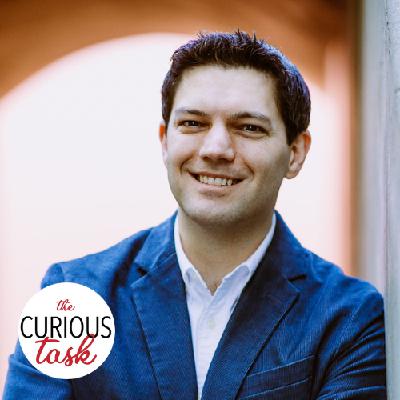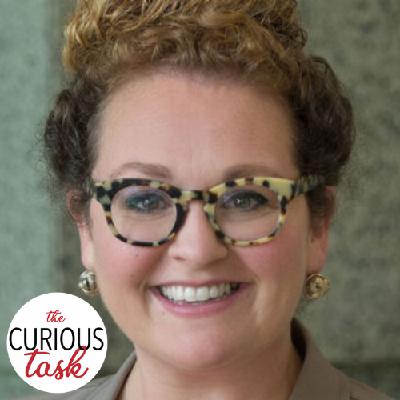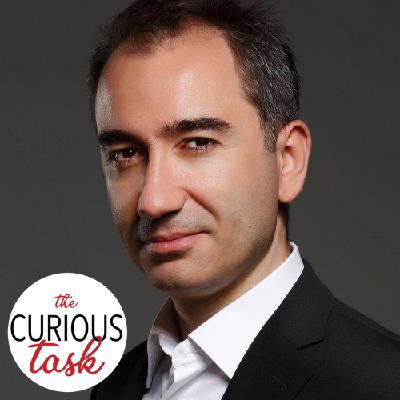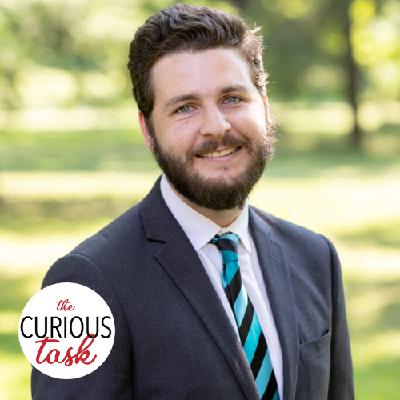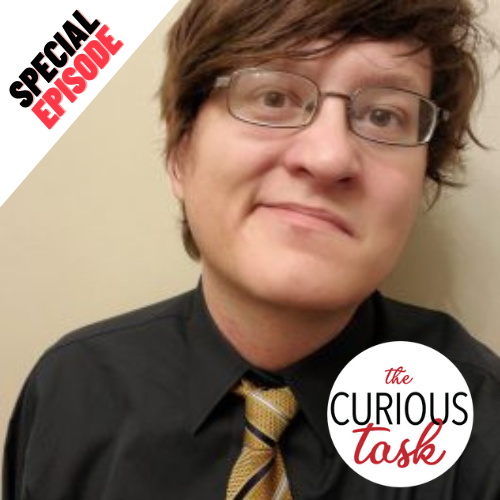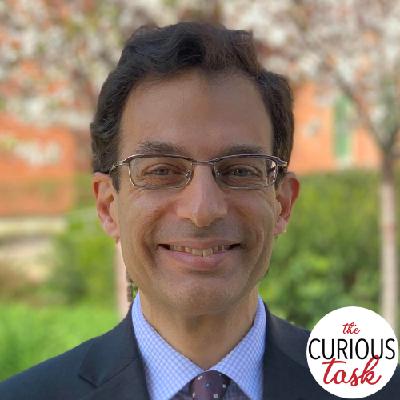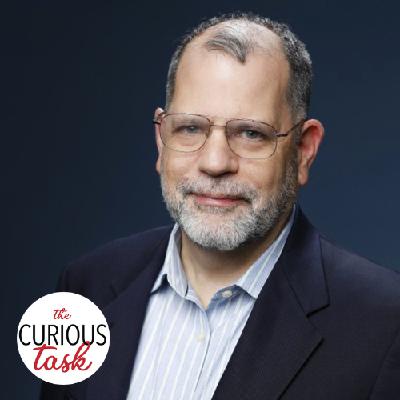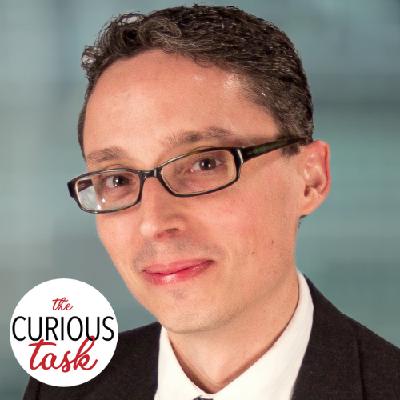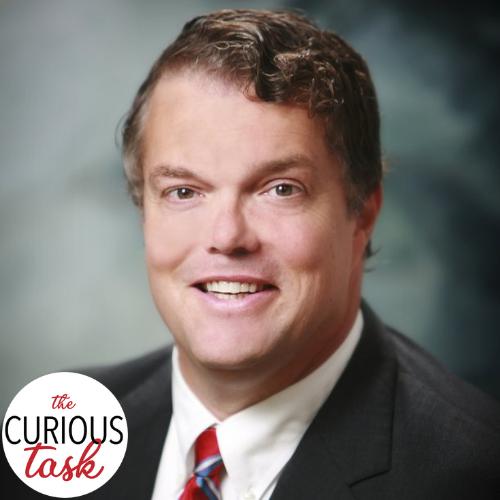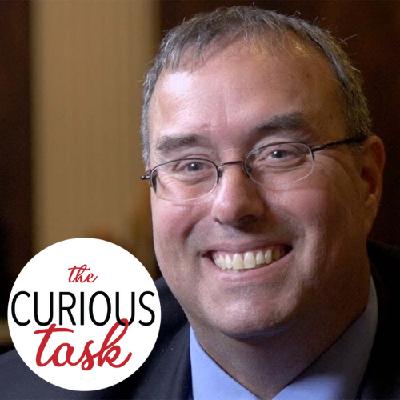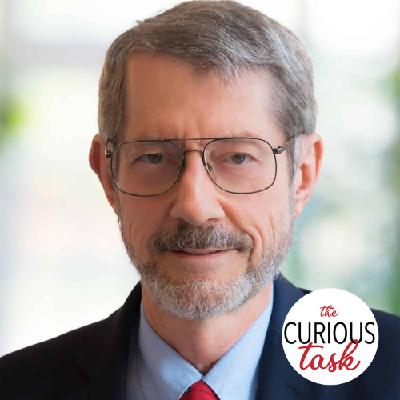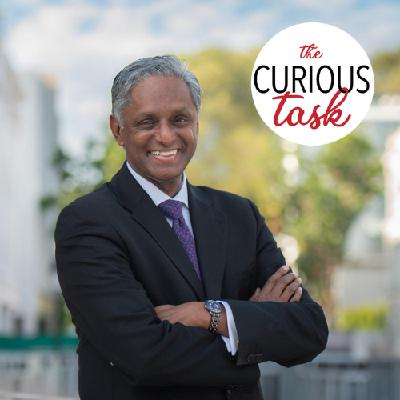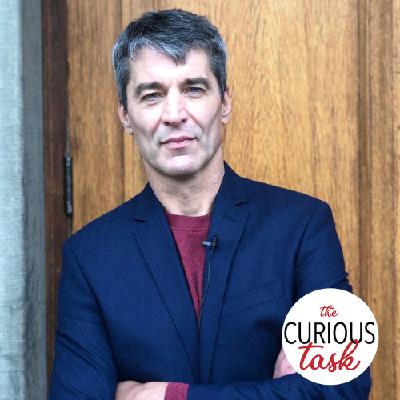Discover The Curious Task
The Curious Task

The Curious Task
Author: Institute for Liberal Studies
Subscribed: 41Played: 2,452Subscribe
Share
© A project by the Institute for Liberal Studies 499634
Description
Host Alex Aragona and a rotating cast of guests explore philosophy, politics, economics, and other ideas from a classical liberal perspective.
308 Episodes
Reverse
ILS Educational Programs Manager Alex Eames speaks with Moin Yahya about whether the state should run the postal service. They explore the history of Canada Post’s monopoly, competition and innovation in mail delivery, and why Lysander Spooner’s 19th-century rebellion still matters for debates about government-run enterprises today.
References:
Moin A. Yahya — Faculty Profile (University of Alberta, Law)
https://apps.ualberta.ca/directory/person/myahya
Canada Post Corporation Act (Justice Laws, Government of Canada)
https://laws-lois.justice.gc.ca/eng/acts/C-10/
Lysander Spooner, The Unconstitutionality of the Laws of Congress Prohibiting Private Mails (1844) — full text
https://oll.libertyfund.org/titles/spooner-the-unconstitutionality-of-the-laws-of-congress-prohibiting-private-mails-1844
American Letter Mail Company (Spooner’s private competitor to the U.S. Post) — Overview (Wikipedia)
https://en.wikipedia.org/wiki/American_Letter_Mail_Company
Royal Mail — Background & 2013 Privatization (Wikipedia)
https://en.wikipedia.org/wiki/Royal_Mail
---
Thanks to our patrons—especially Kris Rondolo—for supporting The Curious Task. To join them: https://patreon.com/curioustask
Matt speaks with Jason Crawford (Roots of Progress Institute) about “technohumanism”—the view that science, technology, and industry are good insofar as they advance human flourishing. They dig into agency vs. accelerationism, why progress creates new problems to solve, and where the next big gains may come from (AI, biotech, nuclear, housing, etc.).
References
Announcing “The Techno-Humanist Manifesto” — Jason Crawford (Roots of Progress)
https://blog.rootsofprogress.org/announcing-the-techno-humanist-manifesto
Technohumanism — Overview & Chapters (official project site)
https://technohumanist.org/
Roots of Progress (main site / institute)
https://rootsofprogress.org/
---
Thanks to our supporters—including Kris Rondolo, Amy Willis, and Christopher McDonald.
To support The Curious Task, visit: https://patreon.com/curioustask
In this episode, Matt speaks with Rachel Davison Humphries, Senior Director of Civic Learning Initiatives at the Bill of Rights Institute, about how rituals like Halloween can strengthen democracy by building trust and social capital in communities.
References
“Halloween Treats for Democracy” — Rachel Davison Humphries (Wall Street Journal)
https://www.wsj.com/opinion/halloween-treats-for-democracy-c8e861ba
Rachel Davison Humphries — Profile (Bill of Rights Institute)
https://oll.libertyfund.org/people/rachel-d-humphries
Rachel Davison Humphries on the Bill of Rights Institute and the Importance of Civics Projects — Getting Smart Podcast episode
https://www.gettingsmart.com/podcast/rachel-davison-humphries-on-the-bill-of-rights-institute-and-the-importance-of-civics-projects/
Democracy in America — Alexis de Tocqueville
https://www.gutenberg.org/ebooks/815
Thanks to Our Patrons
Including Kris Rondolo, Amy Willis, and Christopher McDonald.
To support The Curious Task, visit: https://patreon.com/curioustask
In this conversation from 2020, Alex Aragona speaks with Mustafa Akyol as he explores whether Islam can be compatible with liberalism, and his recent research on freedom in Muslim-majority countries.
References from Episode 70 with Mustafa Akyol
Mustafa Akyol is the author of Rethinking the Kurdish Question: What Went Wrong, What Next? (Turkish), Islam Without Extremes: A Muslim Case For Liberty, The Islamic Jesus: How the King of the Jews Became a Prophet of the Muslims, and his book set for release in April 2021, Reopening Muslim Minds: A Return to Reason, Freedom, and Tolerance (all available titles hyperlinked to Amazon Canada store pages).
You can read Mustafa’s articles featured on his profile on the CATO Institute’s website at this link.
The concluding segment of this podcast was dedicated to discussing Mustafa’s findings in his study, Freedom in the Muslim World, which was published on the Cato Institute’s website and is available for reading here.
Mustafa quotes the observation that Islam had compatible socio-legal setups for embracing liberal society early on had it abided by its foundational teachings from Professor David Forte’s article, Islam’s Trajectory. This article can be read on the Foreign Policy Research Institute’s website at this link.
One of the themes in his upcoming book, Reopening Muslim Minds, Mustafa cites Ash’arism as one of the theological paradigms predating modernity which gave rise to the insularity in Islamic philosophy towards thoughts not originating from revelation. The journal Studia Islamica has an article recounting the religious history of Ash’arism and can be accessed at this link through an active JSTOR account.
Mustafa briefly mentions the Euthyphro Dilemma (Wikipedia), Divine Command Theory (Michael W. Austin, Eastern Kentucky University), and Ethical Objectivism (Oxford Reference) whilst discussing the different camps in Islamic thought. More can be read about these topics through their respective hyperlinks.
You can read more about philosopher John Locke’s premises on toleration of religion and heresy here (A Letter Concerning Toleration courtesy of McMaster University), as well as his view on the separation of church and state at this link (Liberty Fund).
While literature on Islamic liberalism is vast, a good place to start is this article titled What Is Liberal Islam?: The Sources of Enlightend Muslim Thought featured in the Journal of Democracy at this link.
This article on Deutsche Welle summarizes the domestic and international tensions stemming from the cartoons of religious caricatures that were published in France.
Mustafa quotes Daniel Philpott’s book, Religious Freedom in Islam: The Fate of a Universal Human Right in the Muslim World (available on Amazon Canada), about how Islam “had seeds of freedom, but those seeds need to be cultivated.”
You can read the excerpt where the French jurist, Jean Bodin, commended the religious freedom of the Ottoman empire compared to the denominational violence amongst Christians in Europe in Daniel Goffman’s book, The Ottoman Empire and Early Modern Europe here.
Here are Wikipedia articles to the controversy of Islamic scarfs in France, policing over the burkini, and Saudi Arabia’s legislation on public head coverings for women.
In this episode, Alex speaks with political researcher Sam Routley about how conservatism is changing in Canada. Drawing on his article “Decoding Canada’s Conservative Coalition” published in The Hub, Routley explains why Canada’s conservative movement has remained more stable than those in other Western democracies, where right-wing politics have undergone dramatic upheavals. They discuss the historical roots of Canada’s “fusionist” conservatism, the economic and cultural shifts driving new tensions between working-class and knowledge-economy voters, and how Pierre Poilievre’s brand of populism fits within Canada’s longstanding political traditions.
References:
DeepDive: Decoding Canada’s Conservative coalition — Sam Routley (The Hub)
https://thehub.ca/2025/09/27/deepdive-decoding-canadas-conservative-coalition/ The Hub
Sam Routley — Author Page (The Hub)
https://thehub.ca/author/samroutley/ The Hub
Stephen Harper embraced pragmatic, incremental change. Does Pierre Poilievre have grander ambitions? — Sam Routley (The Hub)
https://thehub.ca/2024/10/11/sam-routley-stephen-harper-embraced-pragmatic-incremental-change-does-pierre-poilievre-have-grander-ambitions/ The Hub
Canada’s hard-fought immigration consensus is crumbling before our eyes — Sam Routley (The Hub)
https://thehub.ca/2024/04/10/sam-routley-canadas-hard-fought-immigration-consensus-is-crumbling/ The Hub
Canada needs new political experts — Sam Routley (The Hub)
https://thehub.ca/2023/11/09/sam-routley-canada-needs-new-political-experts/ The Hub
How Canada’s Conservatives Should Solve Their Free Trade Confusion — Sam Routley (C2C Journal)
https://c2cjournal.ca/2023/07/how-canadas-conservatives-should-solve-their-free-trade-confusion/ C2C Journal
Right Here, Right Now: Politics and Leadership in the Age of Disruption — Stephen J. Harper (Indigo)
https://www.indigo.ca/en-ca/right-here-right-now-politics-and-leadership-in-the-age-of-disruption/9780771038624.html Indigo
---
Thanks to Our Patrons
Including Kris Rondolo, Amy Willis, and Christopher McDonald.
To support The Curious Task, visit: https://patreon.com/curioustask
In this episode from 2023, Alex speaks with Neil Boyd about the effects of drug decriminalization and legalization in Canada and around the world, and how regulation and criminalization can have positive or negative impacts on users of various substances and the communities around them.
References
1. “Controlled Drugs and Substances Act, 1996” by the Justice Laws Website
Link: https://laws-lois.justice.gc.ca/eng/acts/c-38.8/
2. “Cannabis Act, 2018” by Justice Laws Website
Link: https://laws-lois.justice.gc.ca/eng/acts/c-24.5/
In this conversation from 2022, Alex speaks with Jason Lee Byas about the complexities of responding to questions of historic injustice, reparations, and compensation within a libertarian framework.
References
1. Articles by Jason Lee Byas, Center for a Stateless Society
Link: https://c4ss.org/content/author/jason-byas
2. “Rectification and Historic Injustice” by Jason Lee Byas
Link: https://philpapers.org/archive/BYARAH.pdf
3. “A Black Commons: A Framework for Recognition, Reconciliation, and Reparations” by Julian Agyeman and Kofi Boone
Link: https://www.academia.edu/113180745/The_Black_CommonsA_Framework_for_Recognition_Reconciliation_Reparations
4. “Compensation for Historic Injustices: Completing the Boxill and Sher Argument” by Andrew I. Cohen
Link: https://www.jstor.org/stable/pdf/40212837.pdf
5. “Should Race Matter?: Unusual Answers to the Usual Questions” by David Boonin
Link: https://www.amazon.ca/Should-Race-Matter-Unusual-Questions/dp/0521149800
6. “The Ethics of Liberty” by Murray N. Rothbard
Link: https://www.amazon.ca/Ethics-Liberty-Murray-N-Rothbard/dp/0814775594
7. “Historical Rights and Fair Shares” by A. John Simmons
Link: https://www.jstor.org/stable/3505011
8. “The Multiculturalism of Fear” by Jacob Levy
Link: https://www.amazon.ca/Multiculturalism-Fear-Jacob-T-Levy/dp/0198297122
9. “Apologies and Moral Repair: Rights, Duties, and Corrective Justice” by Andrew I. Cohen
Link: https://www.amazon.ca/Apologies-Moral-Repair-Corrective-Justice/dp/0367508036
In this coversation from 2023, Matt speaks with Seth Kaplan about his book Fragile Neighborhoods, and why a decision as simple as where we choose to live can often make the difference between lives of prosperity and lives of uncertainty and strife.
Seth's book can be ordered here:
https://a.co/d/aqUzRny
In this episode, Alex speaks with journalist and author Andrew Coyne about why Canadian democracy is in crisis. Drawing from his book The Crisis of Canadian Democracy, Coyne explains how the concentration of power in the Prime Minister’s Office, the erosion of cabinet and caucus independence, and the iron grip of party discipline have hollowed out Parliament. They explore electoral reform, regional alienation, and voter disengagement, and discuss why Canada’s institutions now fail to hold leaders accountable. Coyne argues that the issue is systemic: a slow but steady weakening of democratic norms that requires serious institutional repair if Canadian democracy is to endure.
References
The Crisis of Canadian Democracy — Andrew Coyne
https://a.co/d/49B2UrX
Andrew Coyne — Columns (The Globe and Mail)
https://www.theglobeandmail.com/authors/andrew-coyne/
Canada’s Democracy Is in Crisis: Andrew Coyne on GCD #3 — Macdonald-Laurier Institute
https://macdonaldlaurier.ca/canadas-democracy-is-in-crisis-andrew-coyne-on-gcd-3-in-the-post/
Q&A: MPs ‘Utterly Subservient’ to Leaders — Coyne on Reforming Canada’s Democratic System — The Hill Times
https://www.hilltimes.com/story/2025/06/26/qa-mps-utterly-subservient-to-leaders-says-andrew-coyne-who-proposes-a-path-away-from-that-anti-democratic-system/465123/
Thanks to Our Patrons
Including Kris Rondolo, Amy Willis, and Christopher McDonald.
To support The Curious Task, visit: https://patreon.com/curioustask
In this conversation from 2024,
Matt speaks with Tyler Cowen about his recent book "GOAT:
Who is the Greatest Economist of all Time and Why Does it Matter?", as they discuss the case for and against each of the top finalists, and the interactive AI features that Tyler has integrated into the book's online release.
Episode Notes:
The full book plus all interactive AI features can be found for free here: https://goatgreatesteconomistofalltime.ai/en
In this episode from 2022, Alex speaks with Aaron Powell about the origins of fusionism, where it stands today, and why non-traditional alliances might be the way of the future.
References
1. Free Thoughts Podcast
Link: https://www.libertarianism.org/podcasts/free-thoughts
2. ReImagining Liberty Podcast
Link: https://www.reimaginingliberty.com/podcast/
3. “After protests, Disney CEO speaks out against ‘Don’t Say Gay’ bill” by Elizabeth Blair
Link: https://www.npr.org/2022/03/08/1085130633/disney-response-florida-bill-dont-say-gay
4. “An Introduction to Marxism for Non-Marxists” ReImagined Podcast Episode
Link: https://www.reimaginingliberty.com/an-introduction-to-marxism-for-non-marxists-w-ian-bennett/
In this conversation from 2023, Alex and Mike Munger discuss two strains of thought within the liberty movement - one concerned with philosophical purity and cohesion, the other with advancement towards a common ideal of greater freedom for all.
Episode Notes:
Mike's article "The Right Kind of Nothing": https://www.chronicle.com/article/the-right-kind-of-nothing/
An introduction to Coasian bargaining:
http://www.ejolt.org/2015/09/coasian-bargaining-2/
The Piece commissioned by Leonard Read by Milton Friedman and George Stigler on Rent Control:
https://fee.org/resources/roofs-or-ceilings-the-current-housing-problem/
Mike Munger's piece "This Is Why We Can't Have Nice Things"
https://www.aier.org/article/this-is-why-we-cant-have-nice-things-directionalists-vs-destinationists/
James Buchanan on Relatively Absolute Absolutes
https://link.springer.com/article/10.1007/s11127-021-00883-0
In this conversation from 2023, Alex speaks with Pete Boettke about the relevancy of Friedrich Hayek in the contemporary context, what it means to be a "Hayekian" and the curious tale of how Hayek came to be the focus of his latest book "F. A. Hayek: Economics, Political Economy and Social Philosophy"
Episode Notes
Pete’s book “F. A. Hayek: Economics, Political Economy and Social Philosophy“ https://a.co/d/ah7SpwW
Hayek on The Stanford Encyclopedia of Philosophy https://plato.stanford.edu/entries/friedrich-hayek/
Introduction to Hayek’s “Road to Serfdom” https://mises.org/library/road-serfdom-0
Murray Rothbard’s “Man, Economy and State” retrospective https://fee.org/articles/rothbards-man-economy-and-state-at-50/
Milton Friedman’s “Free To Choose” https://www.proglocode.unam.mx/sites/proglocode.unam.mx/files/docencia/Milton%20y%20Rose%20Friedman%20-%20Free%20to%20Choose.pdf
Hayek “Prices and Production” https://mises.org/library/prices-and-production-and-other-works
Introduction to economics of Lucas https://www.econlib.org/library/Enc/bios/Lucas.html
Steve Horowitz on Hayek https://www.youtube.com/watch?v=K5dR0zgC1ZI
Herbert Dreyfuss “What Computers Can’t Do” https://mitpress.mit.edu/9780262540674/what-computers-still-cant-do/
Horowitz quote on Hayek “we have to learn to live in two worlds at once” https://www.jstor.org/stable/41560288
Hayek’s “The Fatal Conceit” https://press.uchicago.edu/ucp/books/book/chicago/F/bo3643985.html
Kenneth Boulding “After Samuelson, Who Needs Adam Smith?” https://read.dukeupress.edu/hope/article-abstract/3/2/225/12381/After-Samuelson-Who-Needs-Adam-Smith
“The Extended Present” (concept) https://medium.com/extended-present/about
The “Grapes vs. Cucumbers as pay for Monkeys” experiment (youtube video) https://www.youtube.com/watch?v=meiU6TxysCg
The Constitution of Liberty - Hayek https://www.mises.at/static/literatur/Buch/hayek-the-constitution-of-liberty.pdf
Chandran Kukathas’ Liberal Archipelago https://global.oup.com/academic/product/the-liberal-archipelago-9780199219209?cc=ca&lang=en&
Kind vs. Wicked learning environments. https://www.psychologytoday.com/ca/blog/experience-studio/202007/experience-kind-vs-wicked
In this episode, Alex speaks with transportation policy expert Robert Poole about his book Rethinking America’s Highways. Poole makes the case for replacing the current tax-funded, politically managed highway system with a customer-focused, market-based model. He outlines how tolling, public-private partnerships, and long-term concessions can improve infrastructure, reduce congestion, and provide sustainable funding. The discussion examines lessons from international examples, the political and technical barriers to reform, and why a shift in mindset is essential for meeting America’s future mobility needs.
References
Rethinking America’s Highways — Robert Poole
https://a.co/d/1gu8lWE
Robert Poole — Reason Foundation Profile
https://reason.org/author/robert-poole/
Modernizing the Interstate Highway System via Toll Finance — Robert Poole (Reason Foundation)
https://reason.org/policy-study/modernizing-the-interstate-highway/
Funding & Finance — Eno Center for Transportation
https://enotrans.org/topics/funding-finance/
The Big Roads — Earl Swift
https://www.kobo.com/us/en/ebook/the-big-roads
Infrastructure Economics and Policy: International Perspectives — José A. Gómez-Ibáñez & Zhi Liu (eds.)
https://www.booktopia.com.au/infrastructure-economics-and-policy-jose-a-gomez-ibanez/book/9781558444188.html
Thanks to Our Patrons
Including Kris Rondolo, Amy Willis, and Christopher McDonald.
To support The Curious Task, visit: https://patreon.com/curioustask
In this episode from 2023, Alex speaks with Kevin Vallier about his new book "All The Kingdoms Of The World", in which he takes a global view of anti-liberal integralist strands in political thought and warns of the consequences of following them toward a rejection of liberal freedom and democracy.
Episode Notes:
The conversation focuses primarily on Kevin’s book:
https://www.kevinvallier.com/books/all-the-kingdoms-of-the-world-radical-religious-alternatives-liberalism/
Introduction to Catholic Political Integralism:
https://thejosias.com/
https://en.wikipedia.org/wiki/Integralism
Introduction to islamic political anti-liberalism
https://en.wikipedia.org/wiki/Islamism
“The Confucian Tradition and Politics” Youngmin Kim, Ha-Kyoung Lee and Seongun Park https://doi.org/10.1093/acrefore/9780190228637.013.991
In this episode, Matt speaks with Brian Dijkema of Cardus, about the moral limits of modern liberalism. Dijkema argues that while classical liberalism emerged from a tradition concerned with virtue and the common good, today’s liberalism often treats neutrality and technocratic governance as ends in themselves. They discuss the work of classical liberal theorists, Rawls' liberal vision, the legacy of Christian social thought, and how institutional renewal requires more than procedural fairness but rather a shared vision of the good.
References:
Brian Dijkema — Profile (Cardus)
https://www.cardus.ca/personnel/brian-dijkema/
“Liberty, Equality, … Disintegration?” — Patrick Deneen in conversation with Brian Dijkema
https://comment.org/liberty-equality-disintegration/
“Labor’s Conservative Heart” — Brian Dijkema (American Compass)
https://americancompass.org/labors-conservative-heart/
Why Liberalism Failed — Patrick Deneen
https://en.wikipedia.org/wiki/Why_Liberalism_Failed
“The Ethics of Attention in an Age of Distraction” — Brian Dijkema
https://digitalcommons.georgefox.edu/cgi/viewcontent.cgi?article=1146&context=icctej
Brian Dijkema — Contributor Archive (Convivium)
https://www.convivium.ca/writers/bio/bdijkema/page/2/
Brian Dijkema — Articles at Comment Magazine
https://comment.org/contributors/brian-dijkema/
“The Classical Liberal Diaspora” — Michael C. Munger
https://dukespace.lib.duke.edu/items/513d2184-ca95-4508-b4ef-f137a03b32f0
Thanks to Our Patrons
Including Kris Rondolo, Amy Willis, and Christopher McDonald.
To support The Curious Task, visit: https://patreon.com/curioustask
In this episode from 2022, Alex speaks with Chandran Kukathas about the costs of limiting immigration and what effects there may be on policy if the question of who counts as an immigrant is itself unclear.
References
1. “Immigration and Freedom” by Chandran Kukathas
Link: https://www.amazon.com/Immigration-Freedom-Chandran-Kukathas/dp/0691189684
In this conversation from 2020, Alex Aragona chats with Pete Boettke as he dives into what the curious task of economics is and relates it back to the work of Friedrich Hayek.
References from Episode 40 with Pete Boettke
You can purchase Pete Boettke’s book on F.A. Hayek on Amazon Canada here
Check out Pete Boettke’s economics blog here
In this episode, Matt speaks with legal scholar Bruce Pardy about the deep tension between freedom and virtue. Pardy argues that “freedom people” - classical liberals and libertarians - see virtue as something that can only emerge when individuals are free to choose, while “virtue people” believe virtue must come first, even if enforced by the state. They explore the limits of state neutrality, city planning, drug policy, and the rise of authoritarian instincts across both the right and the left. Pardy explains why a truly free society is risky - and why that risk is necessary for genuine virtue and responsibility.
References:
“Freedom and Virtue: Friends or Enemies?” — Bruce Pardy (Brownstone Institute)
https://brownstone.org/articles/freedom-and-virtue-friends-or-enemies/
Bruce Pardy — Profile (Fraser Institute)
https://www.fraserinstitute.org/profile/bruce-pardy
Bruce Pardy — Author Page (The Epoch Times)
https://www.theepochtimes.com/author/bruce-pardy
The Road to Serfdom by Friedrich Hayek
https://a.co/d/cp4rlD5
The Open Society and Its Enemies by Karl Popper
https://a.co/d/iVwmVvs
Thanks to Our Patrons including Kris Rondolo, Amy Willis, and Christopher McDonald. To support The Curious Task, visit: https://patreon.com/curioustask
In this episode, Alex speaks with political theorist Ben Woodfinden about the meaning and complexity of Canadian conservatism. Drawing on his essay “A Tory Impulse and Anti-Laurentian Ideas Drive Canadian Conservatism”, Woodfinden explains why conservatism in Canada is not a single rigid doctrine but a pluralistic network of regionally rooted traditions — from prairie populism and Western anti-elitism to Ontario’s old Toryism and Quebec’s nationalist strands. They unpack Canada’s unique confederation story, the idea of the Laurentian elite, and how any coherent conservatism must remain a coalition rooted in local distinctiveness and historical context.
References
“A Tory Impulse and Anti-Laurentian Ideas Drive Canadian Conservatism” – Ben Woodfinden (The Hub)
https://thehub.ca/2022/08/17/ben-woodfinden-a-tory-impulse-and-anti-laurentian-ideas-drive-canadian-conservatism/
“Canada’s aspiring populists aren’t actually all that radical” – Ben Woodfinden (The Hub)
https://thehub.ca/2022/05/27/canadas-aspiring-populists-arent-actually-all-that-radical/
“King Charles III and the glorious weirdness of Canada's monarchy” – Ben Woodfinden
https://nationalpost.com/opinion/ben-woodfinden-king-charles-iii-and-the-glorious-weirdness-of-canadas-monarchy
Ben's contributions to The Hub
https://thehub.ca/author/benwoodfinden/
“Lament for a Nation: The Defeat of Canadian Nationalism” by George Grant
https://a.co/d/d0NQs95
“The Crooked Timber of Humanity” by Isaiah Berlin
https://a.co/d/6l1wq3d
Thanks to Our Patrons
Including Kris Rondolo, Amy Willis, and Christopher McDonald. To support the podcast, visit:
https://patreon.com/curioustask



